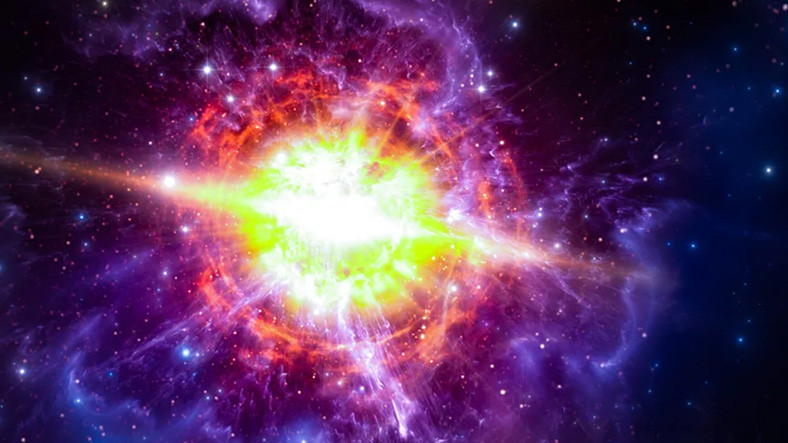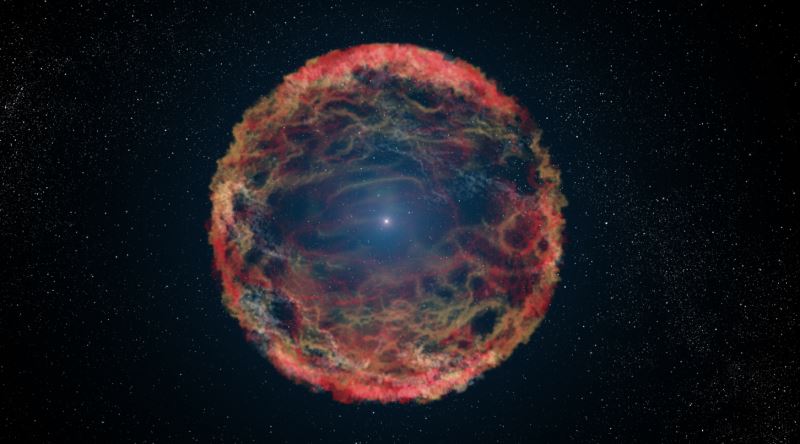On January 14, 2020, the Laser Interferometer Gravitational-Wave Observatory (or LIGO) picked up a burst of gravitational waves washing over our planet, according to a report from Live Science. It didn't last long just 14 milliseconds and scientists are still scrambling to figure out where it came from.

One popular theory is that a nearby star, Betelgeuse, is about to explode into a supernova. A supernova is the dying explosion of a star with at least five times the mass of the Sun. As these stars run out of fuel to burn, they cool off and the pressure drops. Betelgeuse has dimmed by a significant percentage in recent months, and it is this precipitating collapse and drop in mass that scientists think we could be witnessing, as well as a billowing cloud of dust and debris that would shroud the dying star from view.

Gravitational waves are invisible yet extremely powerful ripples through space and time that are caused by the most violent phenomenon in space: things like black hole mergers and supernova explosions.
However, as Andy Howell told Live Science Howell is an adjunct physics faculty at the University of California, Santa Barbara and a staff scientist at Los Cumbres Observatory Global Telescope Network and was not part of LIGO "We've never seen a star blowing up in gravitational waves before, so we don't really know what it would look like." Howell added that this most recent gravitational wave "seems a little too short for what we expect from the collapse of a massive star."
It's possible that, given the short duration of this wave, it was just "noise in the data" but the signal was picked up by LIGO detectors all around the globe and the chance of a false alarm is once every 25 years. Howell says that strengthens the argument that these were gravitational waves and not some blip on the radar, but that still doesn't solve the mystery of where they come from.
Howell takes a fairly philosophical stance: "The universe always surprises us There could be totally new astronomical events out there that produce gravitational waves that we haven't really thought about."
Source:https://www.outerplaces.com/science/item/19543-ligo-gravitational-wave-burst-betelgeuse-supernova
Thekoftte

One popular theory is that a nearby star, Betelgeuse, is about to explode into a supernova. A supernova is the dying explosion of a star with at least five times the mass of the Sun. As these stars run out of fuel to burn, they cool off and the pressure drops. Betelgeuse has dimmed by a significant percentage in recent months, and it is this precipitating collapse and drop in mass that scientists think we could be witnessing, as well as a billowing cloud of dust and debris that would shroud the dying star from view.

Gravitational waves are invisible yet extremely powerful ripples through space and time that are caused by the most violent phenomenon in space: things like black hole mergers and supernova explosions.
However, as Andy Howell told Live Science Howell is an adjunct physics faculty at the University of California, Santa Barbara and a staff scientist at Los Cumbres Observatory Global Telescope Network and was not part of LIGO "We've never seen a star blowing up in gravitational waves before, so we don't really know what it would look like." Howell added that this most recent gravitational wave "seems a little too short for what we expect from the collapse of a massive star."
It's possible that, given the short duration of this wave, it was just "noise in the data" but the signal was picked up by LIGO detectors all around the globe and the chance of a false alarm is once every 25 years. Howell says that strengthens the argument that these were gravitational waves and not some blip on the radar, but that still doesn't solve the mystery of where they come from.
Howell takes a fairly philosophical stance: "The universe always surprises us There could be totally new astronomical events out there that produce gravitational waves that we haven't really thought about."
Source:https://www.outerplaces.com/science/item/19543-ligo-gravitational-wave-burst-betelgeuse-supernova
Thekoftte





